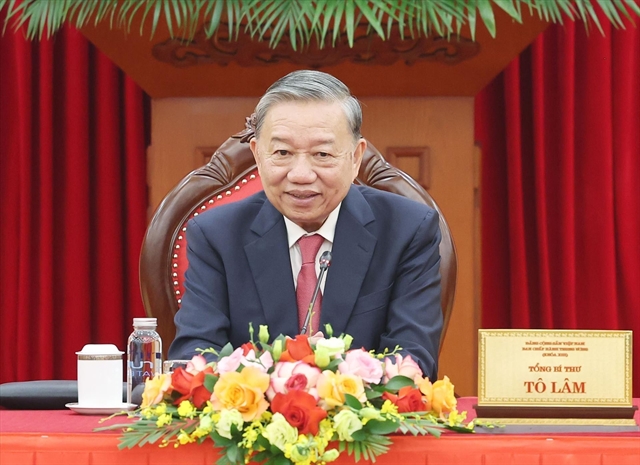 Politics & Law
Politics & Law


|
| The National Assembly Office held a press conference in Hà Nội on Monday on the agenda of the 4th session of the 15th National Assembly. —VNA/VNS Photo |
HÀ NỘI — The 4th session of the 15th National Assembly will take place in 21 days, shorter than the usual year-end meetings which normally last about 30 days, Phạm Thái Hà, Vice Chairman of the National Assembly (NA) Office said at a press conference in Hà Nội on Monday.
He said that the session will open on October 20 and is scheduled to close on November 15 during which legislators will scrutinise and adopt seven bills and three draft resolutions, and opine on seven other draft laws.
The NA will mull reports on the socio-economic situation and state budget in 2022 as well as decide on the socio-economic development plan, state budget estimate and central budget allocation plan in 2023, Hà said.
There will be a question-answer session and thematic supervision, he said, adding that the legislators will make decisions on personnel and other important matters.
Regarding the issue of petrol, which has drawn concern from the public recently, Nguyễn Minh Sơn, Vice Chairman of the NA’s Committee for Economic Affairs, affirmed that this is a problem under the management of the Ministry of Industry and Trade, and the Ministry of Finance. Therefore, it is necessary for the Government to direct relevant agencies to build a more reasonable retail price management mechanism, while ensuring the interests of people, and businesses as well as the interests of traders, importers and retailers.
Sơn also said that the NA Standing Committee proposed the Government urgently study contents related to value-added tax and special consumption tax on petroleum products to submit to the NA for consideration and make appropriate decisions in case the world petrol prices continue to go up or remain at a high level, affecting the inflation index, the macro-economy, people's livelihoods and national economic growth. — VNS